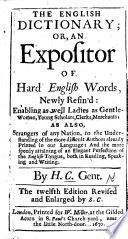
Word of the Day: Tedium
Today’s word of the day, thanks to the WordGuru website, is tedium. According to WordGuru, the noun means “the state of being tedious; boredom; monotony.” According to www.etymonline.com, the word appears in English in the “1660s, from Latin taedium ‘weariness, irksomeness, disgust’ (mostly post-classical), which is related to taedet ‘it is wearisome, it excites loathing’ (in Late Latin ‘be disgusted with, be weary of’) and to taedere ‘to weary,’ but the whole group is of uncertain etymology. Possible cognates are Old Church Slavonic težo, Lithuanian tingiu, tingėti ‘to be dull, be listless.’”
One of the things that is interesting about the etymology is that it is uncertain. Another interesting thing about tedium is that tedious, which also ultimately derives from the Latin taedium, entered the language in the “early 15c., from Old French tedieus, from Late Latin taediosus ‘wearisome, irksome, tedious’” (https://www.etymonline.com/word/tedious#etymonline_v_7672). You may remember that I talked a while back about inkhorn terms, words derived from Latin and used by scholars in the 16th and 17th centuries to make themselves sound more erudite (there’s one!). I have no hard evidence, but I suspect that such scholars picked up the noun almost like a back formation of tedious, though the word tedium was readily available to them from the Latin.
A lot of people complain about the English language, and one of the complaints is that the language has so many words that mean the same thing as a bunch of other words. The usual excuse for this is that Contemporary English has been derived from so many languages through its history. The original language, called Old English or Anglo-Saxon, is a West Germanic language. During the 800s and 900s, the language was influenced by Danish, a North Germanic language. Then, in 1066, the Norman French infamously conquered England, and the Norman version of the French language modified the language a lot, so that Middle English is almost a creole. Of course through these periods and beyond, English was influenced by Latin, which was the language of the Church and of scholarship.
But the duplicate words are more than just about the historical development of the language. There was a lot of borrowing in the 16th and 17th centuries, particularly from Latin and French. For instance, another English word that means “boredom” is ennui. According to etymonline, this noun is “from French ennui, from Old French enui ‘annoyance’ (13c.), back-formation from enoiier, anuier (see annoy). Hence ennuyé (adj.) ‘afflicted with ennui,’ and thence ennuyée (n.) for a woman so afflicted.” The website then goes on to quote the Oxford English Dictionary: “So far as frequency of use is concerned, the word might be regarded as fully naturalized; but the pronunciation has not been anglicized, there being in fact no Eng[lish] analogy which could serve as a guide.”
But here’s what I left out: the word entered the English language in the 1660s, around the same time that tedium entered the language. It’s almost as if those 17th century English scholars were looking around Latin and French for words they could borrow.
Seems like tedium to me.
The image today is of Henry Cockeram’s English Dictionarie. He decried the use of “fustian terms” but included some real doozies (https://oxonist.wordpress.com/2019/01/27/236/), words such as
- Agelasticke. One that neuer laughes.
- Antelucidate. To worke by candle light before day.
- Bulbitate. To befilth ones breech.
- Calamist. One hauing his haire turning vpward.
- Celeripedean. A swift foot man.
- Depalmate. To giue one a box on the eare.
- Galactopoton. One that still drinkes milke.
- Mulierositie. The vice of louing many women.
- Pupillate. To cry like a Peacocke.
- Zoograph. Any one that painteth beasts.
Thanks to the Oxonist for these.